Cultural Experience
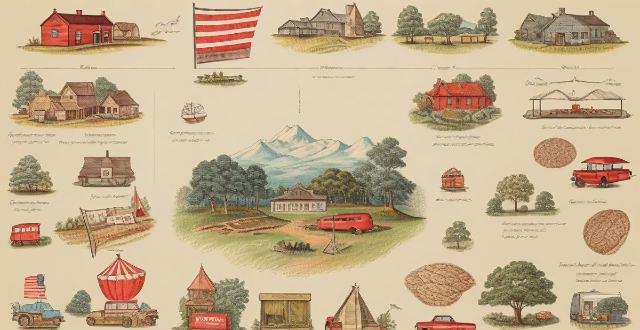
Which Asian countries should I visit for a cultural experience ?
Asian countries offer a diverse range of cultural experiences, including festivals, traditional practices, and historic landmarks. Recommended destinations include Japan's Kyoto and Tokyo, China's Beijing and Shanghai, India's Delhi and Agra, Thailand's Bangkok and Chiang Mai, Vietnam's Hanoi and Ho Chi Minh City, and South Korea's Seoul and Busan. Each country offers unique cuisine and activities for travelers seeking a rich cultural experience.
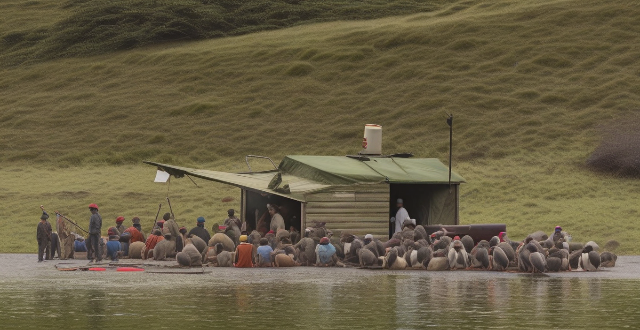
What are some tips for navigating language barriers while on a cultural exploration journey ?
Embarking on a cultural exploration journey can be an enriching experience, but it often involves encountering language barriers. These barriers can make communication challenging and potentially hinder your ability to fully immerse yourself in the local culture. However, with some preparation and the right mindset, you can overcome these obstacles and have a rewarding travel experience. In this guide, we will explore tips for navigating language barriers while on a cultural exploration journey.

What are the best destinations for a cultural exploration journey ?
The text introduces five destinations that are ideal for individuals interested in cultural exploration. Each location offers unique experiences that allow travelers to immerse themselves in the local history, traditions, and way of life. The destinations include: 1. **Kyoto, Japan** - Known for its UNESCO World Heritage sites, tea ceremonies, and geisha culture. Highlights include visiting the Fushimi Inari Shrine, the Golden Pavilion, and enjoying a traditional Kaiseki dinner. 2. **Fez, Morocco** - Famous for its ancient medina, cultural workshops, and music and dance performances. Key activities involve exploring the medina, visiting the Al Quaraouiyine Mosque and University, and tasting Moroccan street food. 3. **Cusco, Peru** - Offers insights into Incan ruins, Andean culture, and a unique ecosystem. Visitors can hike the Inca Trail, attend weaving demonstrations, and participate in the Inti Raymi Festival. 4. **Marrakech, Morocco** - Features souks and bazaars, serene gardens and riads, and performing arts. Notable experiences include tours of the Bahia Palace, mint tea in a traditional Moroccan house, and Gnaoua trance music performances. 5. **Brussels, Belgium** - A multilingual city with Art Nouveau architecture, renowned chocolatiers, and breweries. Key attractions are the Grand Place, the Royal Museums of Fine Arts of Belgium, and a variety of Belgian beers. Each destination provides distinct cultural experiences that cater to different interests, from historical monuments to modern multicultural cities.
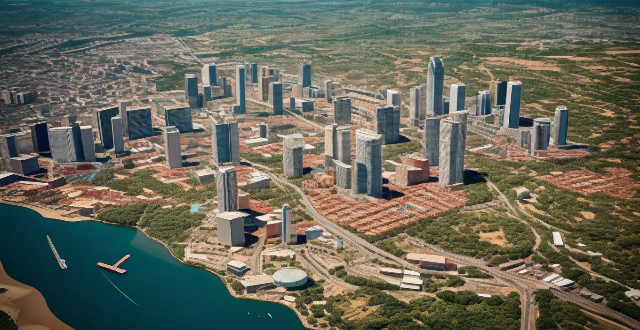
What are the benefits of embarking on a cultural exploration journey ?
Embarking on a cultural exploration journey is an enriching experience that offers numerous benefits, including expanding your horizons, enhancing communication skills, boosting creativity, developing cultural sensitivity, strengthening adaptability, building global awareness, forging lasting connections, and promoting personal growth and self-discovery.
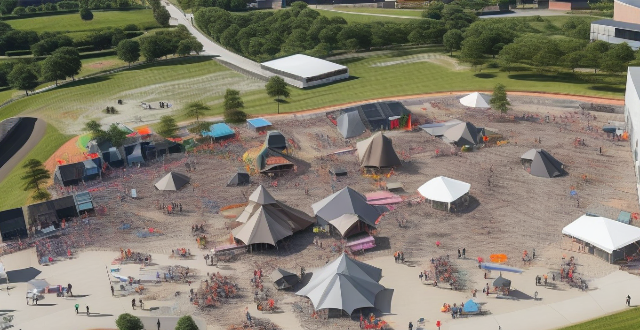
How do food festivals promote cultural diversity and understanding ?
Food festivals are significant events that promote cultural diversity and understanding by offering educational opportunities, exposing attendees to new flavors, building community, impacting the economy positively, providing entertainment, enhancing social media presence and awareness, and promoting sustainability initiatives. These festivals facilitate cross-cultural dialogue, break down cultural barriers, and encourage a shared appreciation for global cuisine.

What challenges do people face when participating in cultural exchanges ?
Cultural exchanges, while enriching, present challenges like language barriers, cultural differences, adjustment difficulties, stereotyping, legal and practical issues, and emotional strain. To overcome these, participants should be open-minded, patient, and willing to learn, with preparation through training, classes, and mentorship.

What should I pack for a cultural exploration journey ?
When embarking on a cultural exploration journey, itWhen embarking on a cultural exploration journey, it that will enhance your experience and it is important to pack items that will enhance your experience and ensure your comfort throughout the trip. Essential items include comfortable walking shoes, lightweight clothing, culturally appropriate attire, camera, portable charger, travel adapter, sunscreen, insect repellent, basic toiletries, reusable water bottle, daypack, and travel journal. Research the specific needs and customs of the culture you will be visiting to tailor your packing list accordingly.

How much do local experience activities usually cost ?
The cost of local experience activities can vary widely depending on factors such as location, duration, exclusivity, group size, timing, and inclusions. Guided walking tours, workshops, cultural events, and outdoor adventures all have different price ranges, but there are ways to save money such as booking in advance, taking advantage of group discounts, combining tickets, looking for local deals, and exploring free options. By considering these factors and utilizing tips for saving money, you can enjoy enriching experiences without breaking the bank.

What are some must-visit cultural sites around the world ?
Culture is an integral part of our lives, and visiting cultural sites around the world can be a life-changing experience. Here are some must-visit cultural sites that you should consider adding to your travel bucket list: 1. The Great Wall of China 2. Machu Picchu, Peru 3. Angkor Wat, Cambodia 4. Taj Mahal, India 5. Colosseum, Italy

What are the cultural challenges faced by international students ?
This article discusses the various cultural challenges that international students face when studying abroad, including language barriers, academic differences, social integration, daily life adjustments, and ethical dilemmas. It also provides coping strategies for overcoming these challenges, such as practicing the local language, participating in cultural exchanges, seeking mental health support, proactively communicating with professors and peers, and embracing differences with curiosity and openness. The author emphasizes that while these challenges can be daunting, they also offer valuable opportunities for personal growth and global understanding.

How can I book local experience activities online ?
### How to Book Local Experience Activities Online Booking local experience activities online involves several steps, from identifying your interests to making a reservation on an online platform. Here's a detailed guide: 1. **Identify Your Interests**: Determine the type of local experiences you're interested in, such as food tours, cooking classes, historical walks, outdoor adventures, or cultural workshops. 2. **Research Online Platforms**: Look into platforms like Airbnb Experiences, GetYourGuide, Viator, Klook, and TripAdvisor that offer a wide range of activities led by local hosts. 3. **Read Reviews and Ratings**: Before booking, read reviews and ratings from previous participants to gauge the quality and authenticity of the experience. 4. **Check Availability and Booking Terms**: Ensure the activity is available on your desired date and time, and review booking terms including cancellation policies and any requirements. 5. **Make the Reservation**: Select your preferred date and time slot, provide participant details, and enter payment information to secure the booking. 6. **Confirmation and Preparation**: After booking, receive a confirmation email with details about the activity, meeting point, and special instructions. Use this information to prepare for the experience. 7. **Enjoy Your Local Experience**: Arrive at the designated location on time, engage with the host and other participants, and immerse yourself fully in the activity. Take photos to remember the experience by.
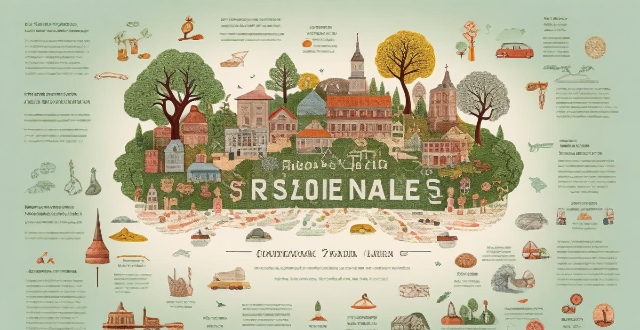
Is there a risk that cultural fusion could result in cultural homogenization ?
The text discusses the risk of cultural homogenization that comes with cultural fusion, which is the blending of different cultures. This process leads to the loss of distinctive features of individual cultures as they become increasingly similar due to globalization, migration, and other forms of cultural interaction. The phenomenon of cultural homogenization is characterized by the loss of heritage, dominance of global culture, and erosion of local practices. Several factors contribute to this, including globalization, mass media, migration, and economic influence. To mitigate the risk, it is essential to promote cultural preservation and exchange while discouraging the domination of any single culture. This can be achieved through supporting local cultures, cultural exchange programs, education, and policy measures.

What is cultural fusion and why is it important ?
The text discusses cultural fusion, which is the blending of different cultural elements from various backgrounds. This process involves exchange, adaptation, and integration of traditions, customs, languages, cuisines, arts, etc. Cultural fusion is important because it promotes diversity and inclusivity, drives innovation and creativity, facilitates global understanding and peace, enhances economic opportunities, and supports sustainable development. It is essential for promoting harmony, innovation, and sustainability in an increasingly interconnected world.

Can you recommend luxury resorts that offer unique cultural experiences ?
This article recommends several luxury resorts worldwide that offer unique cultural experiences. The Four Seasons Resort Bali at Sayan, Amangiri, Capella Ubud, The Brando, Como Shambhala Estate, Hacienda de San Antonio, and Mandapa, Ritz-Carlton Reserve are among the featured resorts. Each provides a blend of luxurious accommodations and immersive cultural activities such as dance classes, guided hikes, spiritual journeys, cooking classes, and more. These resorts are located in diverse settings, including jungles, deserts, mountains, and coastal areas, offering opportunities to explore local traditions, cuisine, history, and natural beauty.

What role does cultural fusion play in globalization ?
Cultural fusion plays a significant role in globalization by enhancing cross-cultural understanding, promoting innovation and creativity, facilitating economic growth, and enhancing tourism experiences. It refers to the blending of different cultures, traditions, and practices from various parts of the world. This process has become increasingly important as globalization continues to bring people closer together through trade, travel, and communication technologies.

What are some ways to incorporate cultural traditions into a family dinner ?
Incorporating cultural traditions into a family dinner can be achieved by setting the table with traditional elements, cooking traditional dishes, sharing cultural stories and traditions, involving children in cultural traditions, and celebrating special occasions. This creates a meaningful and enjoyable cultural experience for everyone involved.

What are the most popular local experience activities in New York City ?
New York City offers a variety of local experience activities, including sightseeing tours, food and drink experiences, outdoor activities, cultural experiences, and shopping experiences. Visitors can explore iconic landmarks like the Statue of Liberty and Central Park, taste local cuisine on food tours, enjoy wine tasting and brewery tours, bike or hike in scenic locations, visit world-renowned museums and theaters, and shop at flea markets, antique stores, and local boutiques.

What are the must-visit romantic honeymoon destinations in Asia ?
Asia boasts numerous romantic honeymoon destinations perfect for couples seeking a blend of natural beauty, cultural experiences, and luxurious amenities. From the pristine beaches of Bali and Maldives to the historic temples of Kyoto and Siem Reap, each location offers unique experiences tailored for an unforgettable honeymoon. Other highlights include the volcanic landscapes of Jeju Island, the winter wonderland of Niseko, the cultural heart of Ubud, the northern Thai charm of Chiang Mai, and the scenic cruising opportunities in Ha Long Bay. These destinations ensure a honeymoon filled with love, relaxation, and adventure.

What is the role of technology in enhancing the international education experience ?
Technology plays a pivotal role in enhancing the international education experience by fostering connectivity, providing access to information, enabling interactive learning experiences, and promoting cultural exchange. With tools like email, video conferencing software, and social media platforms, students can connect and collaborate with peers globally. Online resources such as e-books, databases, and MOOCs offer vast amounts of information previously only accessible through physical means. Interactive learning experiences are made possible through multimedia tools like virtual reality, augmented reality, and gamification. Finally, technology promotes cultural exchange through language exchange platforms, virtual exchange programs, and social media exposure to diverse perspectives. As technological advancements continue, they will undoubtedly further shape the future of international education.
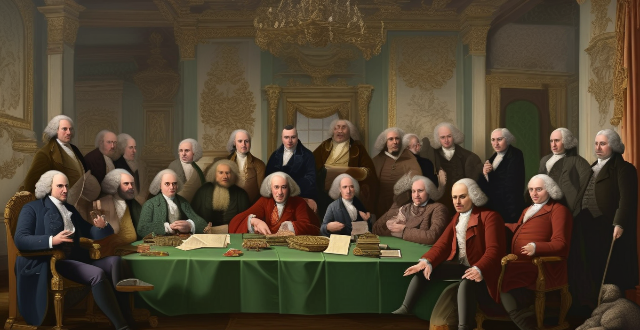
What are the benefits of cultural exchange ?
Cultural exchange is the process of sharing and learning from each other's cultures, promoting understanding, tolerance, and appreciation for diversity. It offers benefits such as enhancing cultural awareness and sensitivity, promoting tolerance and acceptance, encouraging creativity and innovation, and building international relations and peace. Examples include traveling abroad, participating in international events, multicultural classrooms, interfaith dialogues, collaborative projects between artists, exchanging business practices, international cultural festivals, and international student exchange programs. Cultural exchange has the potential to create a more harmonious world where people appreciate and celebrate diversity while working together towards common goals.

What makes a hotel considered a "luxury" experience ?
**What Makes a Hotel Considered a "Luxury" Experience?** A luxury hotel experience is defined by several key factors that set it apart from standard accommodations. These factors are often the result of meticulous attention to detail, exceptional service, and the incorporation of high-end amenities and features. Let's delve into the specifics of what makes a hotel considered luxurious: 1\. Exceptional Service: Personalized attention, professionalism, and courtesy are paramount. This includes butler services, anticipatory service, 24/7 concierge, polite and efficient staff, and multilingual capabilities. 2\. High-Quality Accommodations: The focus is on comfort and elegance. Room amenities include premium bedding, luxurious toiletries, and advanced in-room technology. Design and decor are tasteful, with spacious layouts. 3\. Exclusive Amenities: On-site facilities like fine dining restaurants, full-service spas, and state-of-the-art fitness centers set these hotels apart. Special features such as infinity pools and private beaches or pools add to the indulgence. 4\. Unique Experiences: Bespoke activities and extraordinary events make each stay memorable. Customized excursions and cultural immersion opportunities cater to individual interests. 5\. Location and Accessibility: Prime locations in iconic settings or with easy accessibility to major attractions define luxury hotels. Privacy and security measures ensure guest safety and peace of mind. 6\. Attention to Detail: Consistency in quality, environmental considerations, and thoughtful touches elevate the luxury experience. Immaculate cleanliness, sustainability practices, and personalized services make each stay exceptional. In summary, a luxury hotel experience is characterized by superior service, elegant accommodations, exclusive amenities, unique experiences, prime locations, and consistent attention to detail. It's about creating an environment where guests feel pampered and catered to at every turn, making their stay memorable and exceeding their expectations.
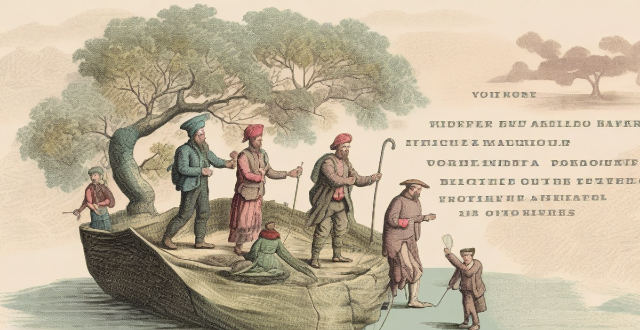
How do cultural beliefs and values influence attitudes towards climate change ?
Cultural beliefs and values play a significant role in shaping individuals' attitudes towards climate change. These cultural factors include worldviews, religious beliefs, social norms, historical experience, and education and awareness levels. Understanding these cultural influences can help promote actions that address climate change while respecting diverse perspectives.
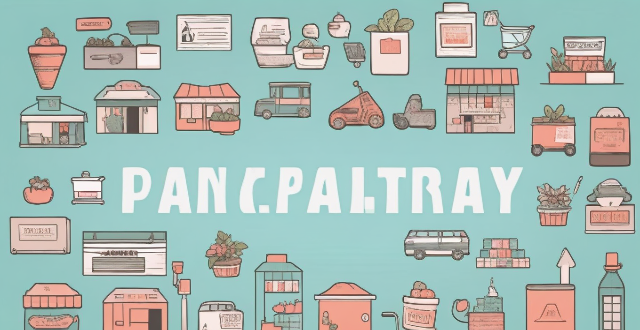
What are the cultural differences to consider while shopping globally ?
This text provides a detailed summary of the key cultural differences to consider while shopping globally, including language barriers, negotiation styles, product selection, payment methods, and etiquette and customs. It emphasizes the importance of adapting to different communication styles, being prepared to negotiate prices, looking for local specialties, being aware of different payment methods, and respecting local customs and traditions. By considering these cultural differences, one can ensure a smoother and more enjoyable shopping experience while traveling globally.

What are the best cruise lines for a luxury travel experience ?
In the realm of luxury cruise lines, several standIn the realm of luxury cruise lines, several stand, inclusive features, several stand out for their exceptional service, inclusive features, and unique experiences. Silversea Cruises leads with its butler service and all-inclusive fares, while Crystal Cruises shines with personalized service and diverse dining. Regent Seven Seas emphasizes cultural immersion, and Seabourn offers intimate cruising with beach clubs. Oceania lures foodies, Azamara specializes in night stays and cultural tours, and Viking focuses on destination-rich itineraries. Cunard brings history and tradition, Yachts of Seabourn offer ultra-luxury, and Holland America is known for its art and music events. Each cruise line caters to different preferences, ensuring a high-end travel experience tailored to various tastes.

How has technology impacted the process of cultural fusion ?
Technology has revolutionized the way we live, work, and communicate, significantly impacting cultural fusion. It has increased accessibility to different cultures through the internet, social media platforms, and messaging apps, leading to a greater exchange of ideas, beliefs, and practices between cultures. Online courses have made education more accessible than ever before, promoting understanding and appreciation of diverse cultures. Travel and tourism have been enhanced by technology through virtual tourism and navigation apps, allowing for greater engagement with local cultures during trips. Food blogging and social media platforms have played a significant role in promoting cultural fusion through cuisine, while online grocery shopping has facilitated the creation of authentic dishes from various parts of the world. Overall, technology has facilitated the exchange of ideas, beliefs, and practices between cultures, leading to greater levels of cultural integration in the future.

How can we celebrate cultural diversity through festivals and events ?
Celebrating cultural diversity is a beautiful way to foster understanding, respect, and appreciation for different cultures. Festivals and events are perfect platforms for this celebration as they bring people together in a festive atmosphere that encourages sharing and learning about diverse traditions. Here's how we can celebrate cultural diversity through festivals and events: Inclusivity in Planning and Participation: To ensure that cultural diversity is celebrated genuinely, it's essential to involve members from various cultural backgrounds in the planning and execution of festivals and events. This approach ensures that traditions are represented authentically and respectfully. Showcasing Cultural Arts and Performances: Artistic expressions like music, dance, theater, and visual arts are integral to many cultures. Featuring these during festivals allows attendees to experience the depth and beauty of different cultural art forms. Food Festivals and Culinary Experiences: Food is a universal language that transcends borders. Organizing food festivals or culinary workshops that highlight dishes from various cultures can be a delightful way to celebrate diversity. Educational Workshops and Discussion Panels: Providing opportunities for learning and dialogue enhances the understanding of different cultures. Workshops and panel discussions can cover topics like history, traditions, and contemporary issues affecting various cultural groups. Community Interaction and Networking: Festivals and events should encourage interaction among participants to build connections and foster a sense of community. These interactions can lead to lasting friendships and mutual respect among diverse groups. Respectful Representation: When celebrating cultural diversity, it's crucial to ensure that representations are respectful and avoid stereotyping or caricatures. Research and collaborate with cultural representatives to ensure accuracy and sensitivity in all aspects of the event.

How do I find unique local experience activities when traveling ?
When traveling, immersing yourself in unique local experiences is a fantastic way to connect with a new culture. Here's how you can find these special activities: 1. **Research Online**: Use travel websites and apps like TripAdvisor, Airbnb Experiences, and GetYourGuide. Join local Facebook groups for insider tips. 2. **Ask Locals**: Hotel staff, hosts, and people in cafes often have great recommendations. 3. **Visit Local Tourism Offices**: Information centers and kiosks provide maps, brochures, and advice on lesser-known activities. 4. **Explore on Foot**: Take walking tours or wander off the beaten path to discover hidden gems. 5. **Look for Local Events and Festivals**: Check event calendars and attend cultural celebrations for a deep dive into local heritage. 6. **Use Guidebooks Selectively**: Choose guidebooks focusing on off-the-beaten-path experiences and verify information online. 7. **Consider Alternative Accommodations**: Staying with locals or at farm stays can offer unique experiences. 8. **Be Open to Serendipity**: Embrace spontaneity and negotiate directly with locals for unexpected opportunities. By employing these strategies, you can find and enjoy unique local experiences that will make your travels memorable.
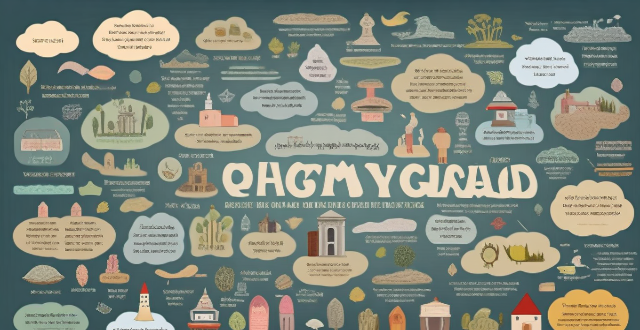
What role does media play in shaping our perception of cultural diversity ?
This article explores the significant role of media in shaping our perception of cultural diversity. It highlights how media exposure to different cultures, representation of cultural diversity, and influence on attitudes and beliefs contribute to understanding and appreciation of cultural diversity. The article encourages critical thinking and active seeking out of diverse perspectives to promote a more inclusive society.
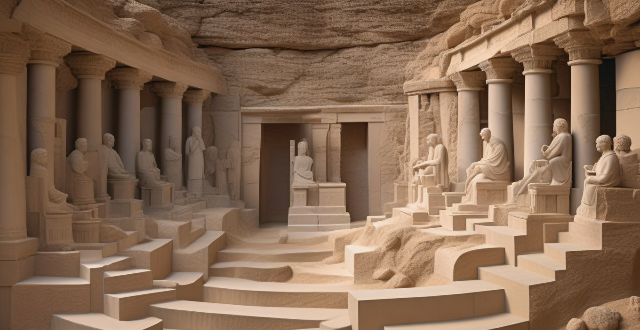
What role does art play in cultural exchange ?
Art is a powerful medium for cultural exchange, promoting understanding and empathy between different societies. It transcends language barriers and connects people on a deeper level. Art can facilitate mutual understanding by exposing individuals to diverse perspectives and experiences. Visual arts provide a visual representation of culture, while performing arts offer a dynamic form of cultural exchange. Literary arts explore the inner workings of a culture through its stories and narratives. Art also promotes creativity and innovation within cultures, encouraging experimentation with new ideas. Artistic collaborations between artists from different cultures can result in groundbreaking works that blend traditional elements with modern influences. Art serves as a means of preserving cultural heritage, documenting the history, traditions, and customs of a society. Museums and galleries showcase art from different cultures, promoting cultural awareness and appreciation among the public. Cultural festivals celebrate the artistic achievements of different cultures through various forms of performance. Overall, art plays a vital role in cultural exchange by enhancing mutual understanding, promoting creativity and innovation, and preserving cultural heritage.

How has globalization impacted cultural diversity around the world ?
Globalization has significantly impacted cultural diversity, leadingGlobalization has significantly impacted cultural diversity, leading adaptation but also potential homogen Policy and governance play a role in cultural preservation, with local resistance movements countering globalization effects. Striking a balance between global benefits and cultural preservation is crucial for maintaining diversity.